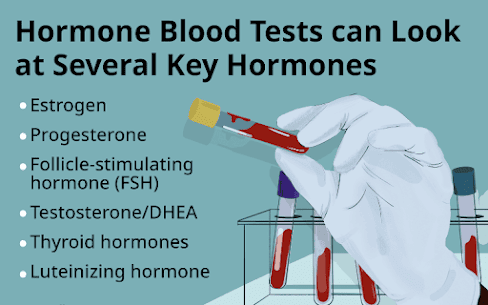Hormones are often referred to as the body’s chemical messengers. They are produced in the endocrine glands and travel through the bloodstream to organs and tissues, impacting numerous bodily functions including growth, metabolism, fertility, and mood. Because of their expansive influence, even small imbalances in hormone levels can affect your health in significant ways. In this article you see why hormone testing is an important aspect of your overall health and wellness.

The Basics of Hormones
At their core, hormones regulate the activities of cells and organs, ensuring your body functions optimally. The major hormones include thyroid hormones, which regulate metabolism; reproductive hormones like estrogen and testosterone, which manage reproductive processes and secondary sexual characteristics; and adrenal hormones such as cortisol, which is involved in stress responses and energy management.
What is a Comprehensive Hormone Test?
A comprehensive hormone test is a detailed assessment used to measure the levels of various hormones within your body. Unlike basic tests that might only look at one or two hormones, comprehensive tests cover a wide range, providing a broad view of your hormonal health. This type of testing is crucial because different hormones interact with each other, and imbalances can lead to complex health issues.
Reasons for Undergoing a Hormone Test
Individuals may opt for hormone testing for various reasons. Common symptoms indicating a hormonal imbalance include fatigue, unexpected weight gain or loss, mood swings, sleep disturbances, and changes in sexual function. Women may experience symptoms of menopause or polycystic ovary syndrome (PCOS), while men might notice symptoms related to low testosterone levels. Moreover, those with thyroid issues often report feeling unusually cold, fatigued, or depressed. A comprehensive hormone test can help diagnose these conditions by pinpointing which hormones are out of balance.
Components of a Comprehensive Hormone Test
Comprehensive hormone tests typically evaluate several major hormones:
- Cortisol: Known as the “stress hormone,” it helps control blood sugar levels, regulate metabolism, and reduce inflammation.
- Estrogen and Progesterone: Critical in regulating menstruation and reproductive functions in women.
- Testosterone: Important for bone mass, muscle mass, and producing red blood cells in both men and women.
- Thyroid Hormones (T3 and T4): Manage your metabolic rate, or how your body uses energy.
These tests can be conducted using blood, saliva, or urine samples. Blood tests are common and provide accurate measurements for most hormones. Saliva testing is useful for understanding the body’s circadian patterns of hormone release, particularly with cortisol. Urine testing can offer a comprehensive snapshot of hormone levels over a 24-hour period, providing an average that might be more indicative of your overall hormone balance.
The Testing Process Explained
When undergoing a comprehensive hormone test, you can expect the following steps:
- Pre-Test Preparation: Depending on the type of test, you may need to fast, refrain from certain medications, or alter your supplement intake.
- Sample Collection: A healthcare professional will collect blood, saliva, or urine based on the testing method.
- Analysis: Your samples are analyzed in a lab to determine hormone levels.
- Post-Test Consultation: You will discuss the results with your healthcare provider to understand what they mean for your health.
Interpreting the Results
Interpreting hormone test results can be complex. Levels that might be normal for one person could be symptomatic for another, depending on individual health conditions, age, and biological factors. Your healthcare provider will consider these nuances when reviewing your results. They will explain how your hormone levels impact your health and can suggest treatment options if necessary. These might include lifestyle changes, medication, or further testing.
The Impact of Knowing Your Hormone Levels
Understanding your hormone levels can significantly enhance your quality of life by allowing for targeted treatments. Addressing hormonal imbalances often leads to marked improvements in symptoms like fatigue, weight issues, mood instability, and more. Beyond symptom relief, hormone balance is crucial for long-term health, influencing everything from bone density to cardiovascular health.
Conclusion
Comprehensive hormone testing is a powerful tool in understanding and managing your health. It can provide insights that lead to targeted treatments, improving symptoms and reducing the risk of associated conditions. If you’re experiencing signs of hormonal imbalance, consider speaking with a healthcare provider about comprehensive hormone testing. It’s not just a test; it’s a pathway to better health and well-being.

